Perfume Pagoda Festival: Vietnam’s Sacred Pilgrimage
Drawing millions of pilgrims and visitors annually, the Perfume Pagoda Festival is among Vietnam’s most important cultural and spiritual gathering. This holy Buddhist ceremony, which takes place in the lovely Huong Son region, honors Vietnam’s natural beauty in addition to a path of religion. In this article, MOTOGO Tours will help you explore the history, rituals, and experiences of this festival.
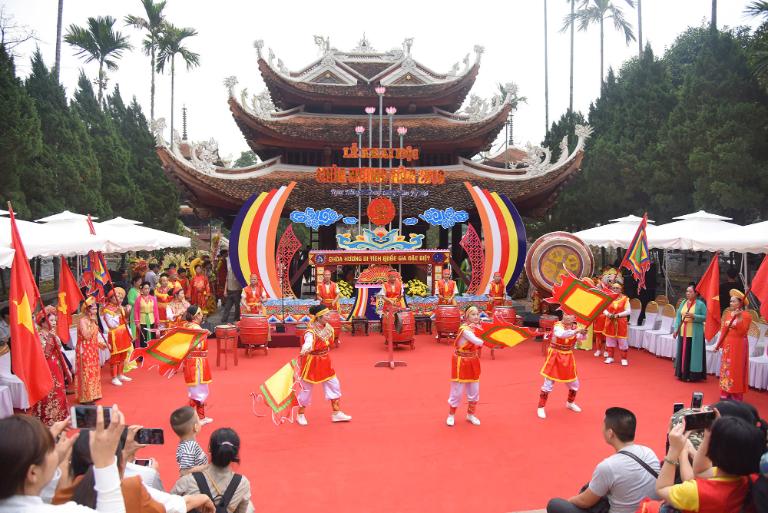
The History of the Perfume Pagoda Festival
The Perfume Pagoda Festival began decades ago and combines religious, cultural, and historical elements. The festival’s roots are closely connected to the establishment of the Perfume Pagoda, a sacred Buddhist pilgrimage site built around the 15th century.
Origin and Early Celebrations
It first provided a venue for monks and devotees to meditate, but it finally developed into a large celebration drawing people from all throughout the nation. Early on in this celebration, its scope was small and mostly including local monks and surrounding residents. The celebration grew over time and included several rites, events, and offerings that today define its identity in great part. Starting a pilgrimage in search of spiritual rewards has been a habit going back thousands of years.
The Cultural and Religious Significance
The Perfume Pagoda Festival is a cultural gathering reflecting the great spiritual connection of the Vietnamese people, not only a religious occasion. Attending the celebration and praying at the pagoda, devotees say, brings luck, health, and wealth. This is also a time for people to commemorate their ancestors and pay respect to Buddha, therefore highlighting the significance of the celebration in Vietnamese life.
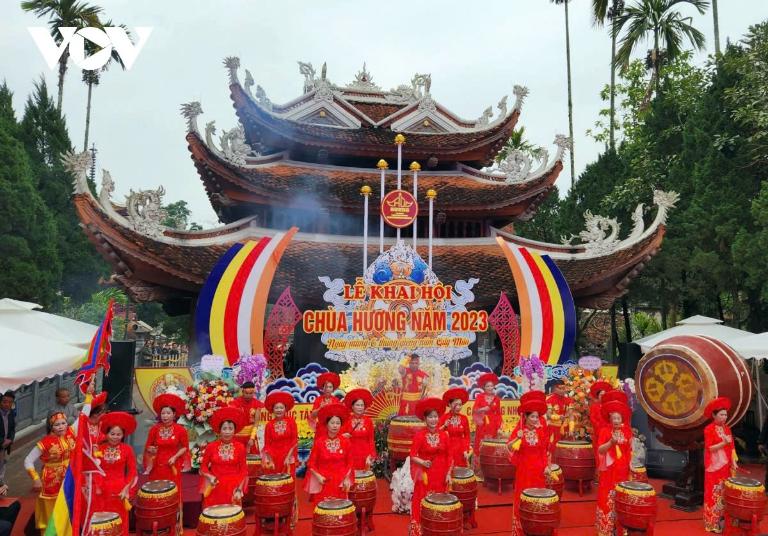
When and Where Does the Perfume Pagoda Festival Take Place?
Beginning on the 6th day of the first lunar month and running until the end of the third lunar month, the Perfume Pagoda Festival takes place every year. Huong Son, the festival site, is around 70 kilometers southwest of Hanoi, accessible but still far enough to retain its spiritual ambiance.
Dates and Duration of the Festival
The Perfume Pagoda Festival lasts for the first through the third lunar month. Every year, the formal opening ceremony takes place on the sixth day of the first lunar month, so commemorating the custom “forest opening” day for the residents. Though the celebration spans three months, the full moon of the first lunar month to the 18th day of the twelfth lunar month marks the peak period attracting the most guests from all throughout the nation.
Location and Accessibility
Held yearly and drawing thousands of Buddhists from all throughout Vietnam, the Perfume Pagoda Festival is a prominent Tet celebration for sightseeing and pilgrimage. The celebration takes held in Huong Son, My Duc District, Hanoi at the Perfume Pagoda complex (also known as Huong Son). This destination is often described as a harmonious blend of religious and cultural significance, featuring Buddhist temples, shrines dedicated to various deities, and beliefs rooted in agricultural worship.
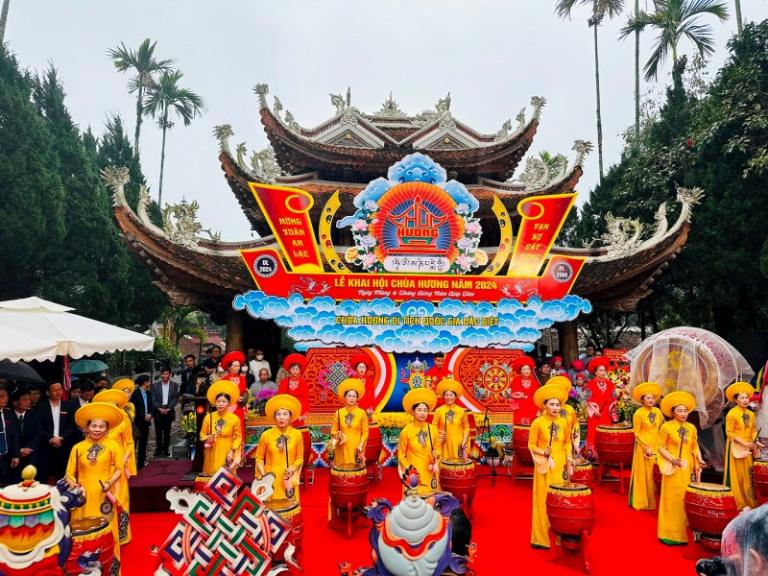
How to Get to the Perfume Pagoda
Transportation Options from Hanoi
From Hanoi to the Perfume Pagoda, visitors can ride a bus, private automobile, or motorbike. Given regular departures from My Dinh bus station, buses are the most reasonably priced choice. While motorcyclists offer an exciting means of seeing the countryside, private automobiles or taxis offer more luxury and flexibility. Traffic and road conditions determine the approximately two hours the travel takes.
Guided Tours vs. Self-Guided Travel
First-time guests frequently choose guided tours including Hanoi motorbike tours since they usually include transportation, admittance fees, and a competent guide able to offer insights on the background and customs of the festival. A self-guided excursion lets individuals who like a more flexible schedule explore at their own speed. To prevent any difficulties, it is advisable to investigate the path and adjust the strategy, nevertheless.
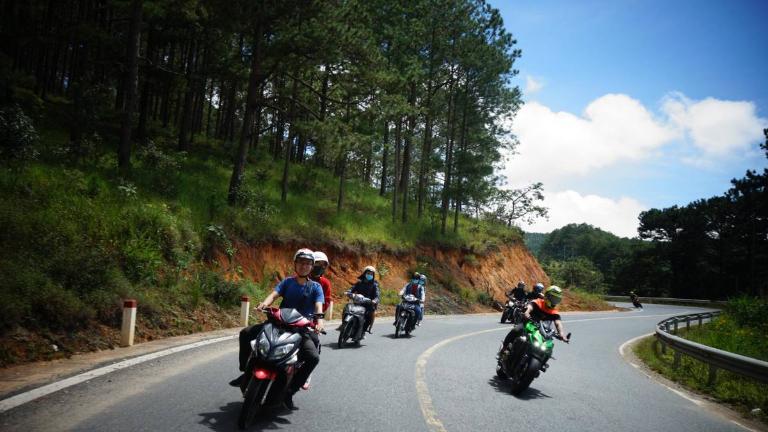
What to Expect at the Perfume Pagoda Festival
Immersion in holy rites, cultural events, and a spiritual reverent ambiance defines the Perfume Pagoda Festival. Millions of pilgrims and guests seeking blessings, honoring their beliefs, and discovering the natural beauty of the Huong Son area join the celebration.
Opening Ceremony and Rituals
The festival starts on the 6th day of the first lunar month with a big opening ceremony. Comprising a procession of monks, followers, and local officials attired in traditional robe, the ritual is a vibrant and serious event. To offer at Thien Tru Pagoda are incense, flowers, fruits, and food. As pilgrims search blessings for health, happiness, and success, the air fills with the sounds of reciting prayers, bell ringing, and burning incense.
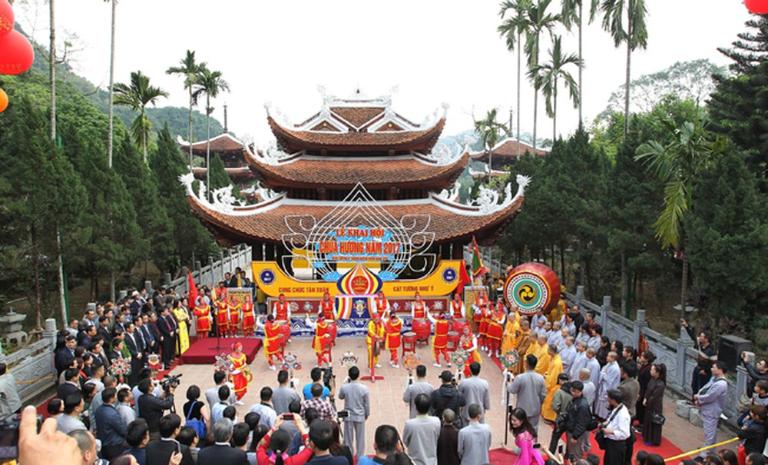
Traditional Activities and Offerings
The event is alive with a range of traditional activities and religious offerings throughout. At several pagodas and temples spread around the Perfume Pagoda complex, pilgrims pray, meditate, and chant. Making offerings—such as lighting incense and presenting fruits, flowers, and rice cakes at the altars—defines most of the activity. People often show thanks for earlier wishes that were granted since they bring further presents.
Pilgrimage to the Pagoda
The pilgrimage itself is among the most crucial events of the Perfume Pagoda Festival. As pilgrims negotiate the natural terrain to reach the holy pagoda, this trip is a spiritual as well as a physical one. The pilgrimage starts with a picturesque boat trip down the Yen Stream then climbs Huong Tich Mountain by cable car. Considered as a major component of the spiritual experience, the walk is symbolic of a road towards illumination.
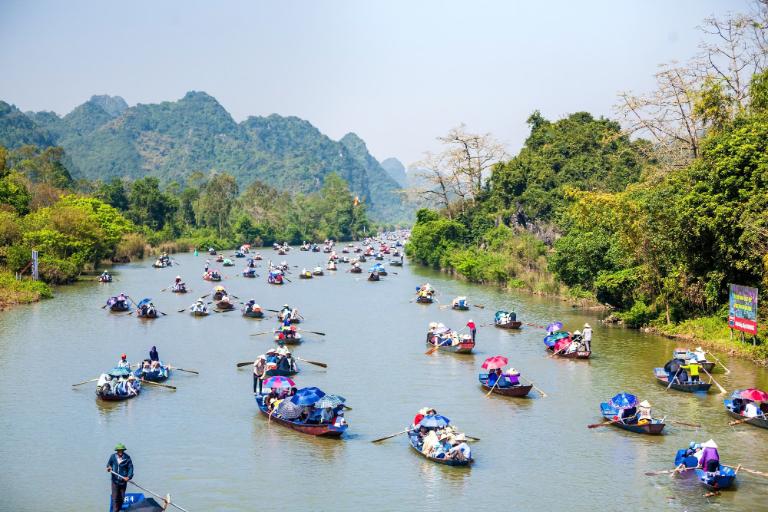
Offering Rituals and Prayers
Throughout the celebration, devotees engage in several ceremonies and prayer meetings. Presenting incense sticks, fruits, flowers, and symbolic objects like money or figures is the most often used custom. These presents are said to bring luck, grant desires, or maybe even help with health issues. With worshippers really seeking Buddha’s blessings, prayers for loved ones, ancestors, and personal desires abound in the pagoda halls.
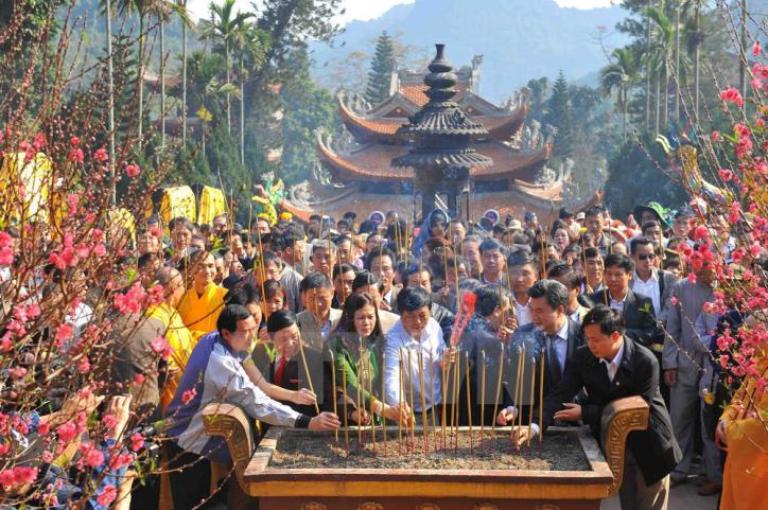
Festive Food and Local Cuisine
The Perfume Pagoda Festival revolves mostly on food since many guests use the chance to savor regional cuisine. Selling traditional cuisine and sweets that accentuate the celebratory mood, vendors line the pilgrimage path. Among the popular delicacies are “banh troi,” (floating rice cake), “banh chay,” (sticky rice cake with mung bean paste), and “com,” (green rice flakes). Since many Buddhists travel on the pilgrimage and eat vegetarian food, the festival also provides an opportunity to sample such cuisine.
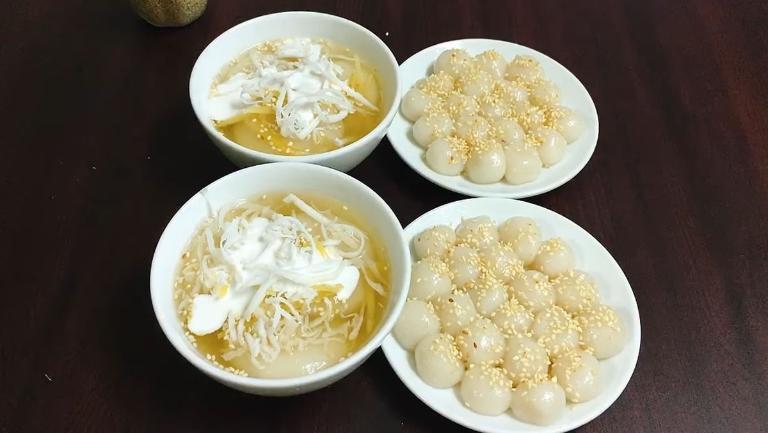
Notable Sites to Visit During the Perfume Pagoda Festival
Spaced over the picturesque Huong Son region, the Perfume Pagoda complex is a huge system of temples, pagodas, and shrines. These holy places come alive during the festival as pilgrims and guests explore the spiritual terrain; each site provides a different window into Vietnam’s religious legacy and natural beauty.
Huong Tich Cave: The Heart of the Pagoda Complex
Considered “The Cave of Traces,” Huong Tich Cave is the main draw for the Perfume Pagoda complex and has great spiritual value for Buddhists. An 18th-century king, Lord Trinh Sam, famously said, “the most beautiful cave in Vietnam,” about the opening of Huong Tich Cave. You will find the cave to have a mysterious atmosphere as you descend since its mouth looks like that of a dragon’s open mouth. Stalactites and stalagmites shaped like different objects—such as rice stacks, gilded trees, even Buddha’s hand—adorn the cave’s inside.
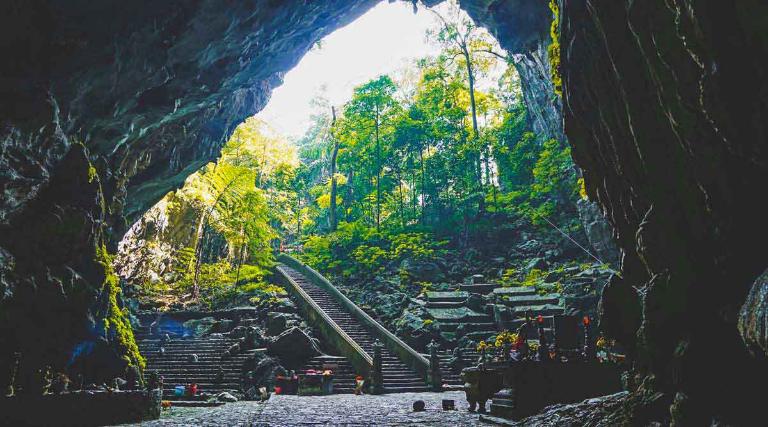
Thien Tru Pagoda: The Heavenly Kitchen
An other important site in the Perfume Pagoda complex is Thien Tru Pagoda, sometimes known as the Heavenly Kitchen. With its exquisite mix of traditional Vietnamese architecture combined with detailed carvings, artistic themes, and statues of many Buddhist characters, Thien Tru Pagoda is Usually humming with activity during the event, the main hall is used for rituals and prayers. As part of their rites, monks perform religious ceremonies where guests may see sutra reciting and incense lighting.
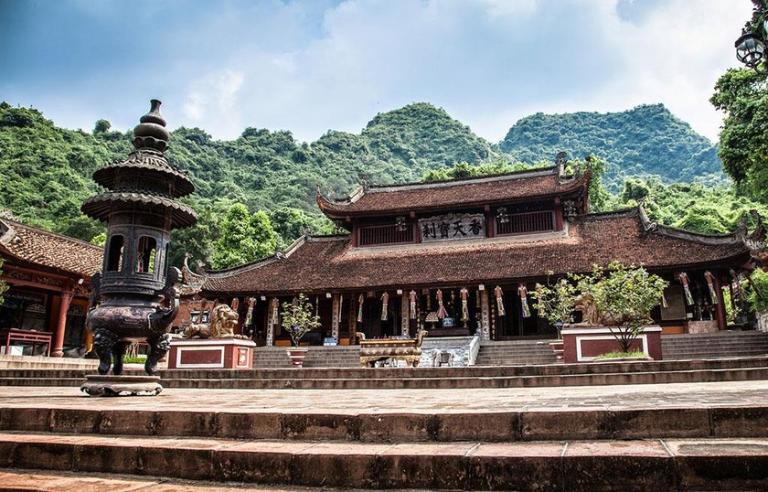
Practical Tips for Attending the Perfume Pagoda Festival
If you intend to go to the Perfume Pagoda Festival, there are a few pragmatic issues to take into account to guarantee a seamless and fun trip.
Best Time to Visit and Avoid Crowds
Visit in the middle of the festival, from the conclusion of the first lunar month to the beginning of the second lunar month, to avoid the busiest throngs. The travel up Huong Tich Mountain is more pleasant during this season since the quantity of visitors is more under control and the weather is frequently milder. Also less packed than weekends are weekdays.
What to Wear and Bring
Given the festival calls for outdoor activities and trekking, it’s essential to dress comfortably and choose robust walking shoes. A light jacket is advised since early in the morning or late at night especially temperatures can vary. Staying hydrated during the walk depends on carrying a hat, sunscreen, and lots of drink. Given the physically taxing nature of the hike, think about packing sme snacks.
Etiquette and Dos and Don’ts
Visiting a holy site like the Perfume Pagoda calls for modest attire and polite behavior. Steer clear of loud conversation or disrespectful behavior within the pagoda; always take off your shoes before approaching a prayer hall. Making a little donation while visiting shrines is common since it respects the legacy and helps the location to be kept. Photography is let, but be aware of any indicators of limitations.
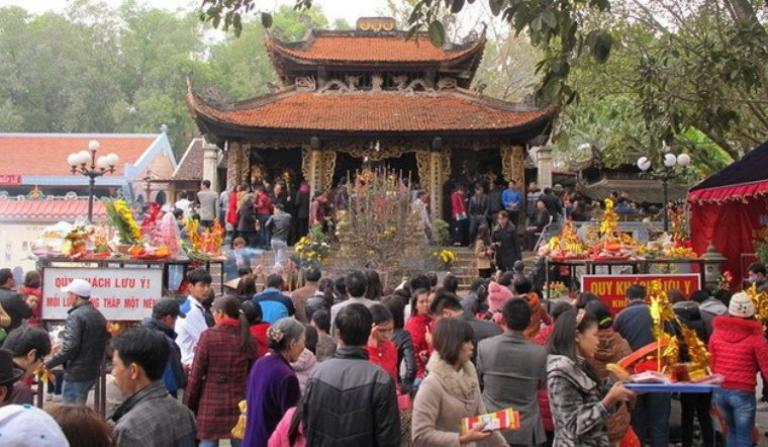
Reflecting Vietnamese rich customs, the Perfume Pagoda Festival is a singular cultural and spiritual event. From the holy ceremonies and rites to the demanding pilgrimage, the Perfume Pagoda Festival takes attendees on a road toward inner serenity and enlightenment that transcends a mere physical walk.
Related posts:






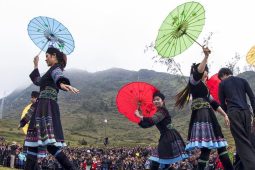
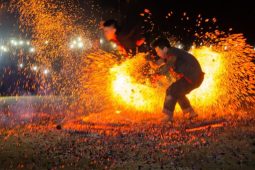
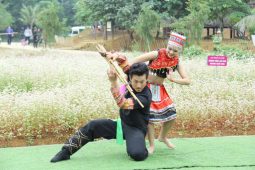
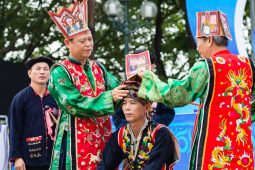
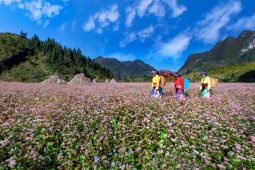
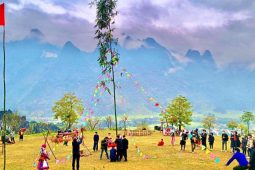
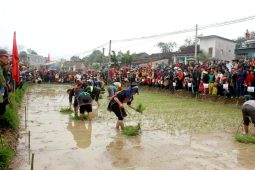
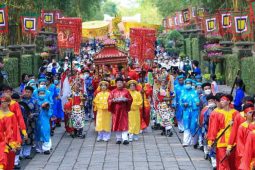
Be the first to comment!